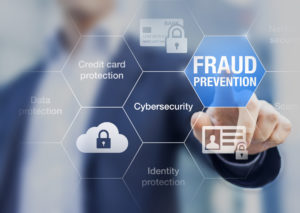The laws that make up fair lending are designed to prevent financial institutions from discriminating against certain groups of people. These laws help to ensure equal treatment for all.
What is Fair Lending?
Fair lending laws are designed to prevent discrimination in the lending process. They ensure that financial institutions do not discriminate against certain groups of people, such as people with disabilities and members of minority races. Fair lending laws help to ensure equal treatment for all consumers seeking loans or other types of financing.
Fair Lending Laws in the US
Fair lending laws are designed to ensure equal treatment for all consumers. They are intended to protect consumers from unfair acts or practices in the extension of credit, and they mandate that financial institutions serve all segments of their communities without discrimination.
The Equal Credit Opportunity Act (ECOA) is the primary fair lending law enforced by the Consumer Financial Protection Bureau (CFPB). ECOA prohibits creditors from discriminating against any person on the basis of age, sex, marital status, race, color, religion and national origin; having a Social Security number that contains errors, or being limited English proficiency.
Fair Lending Laws Enacted on March 19th 2013
As part of the Dodd-Frank Wall Street Reform and Consumer Protection Act passed in 2010, new rules were put in place regarding how banks could write mortgages — specifically requiring them to consider borrowers’ ability to repay their loans as well as other factors such as income levels and credit histories when considering whether or not they should issue loans.
Overview of fair lending laws
Fair lending laws are designed to prevent discrimination against certain groups of people in the financial market. They ensure that all are treated equally, regardless of their race, gender, or other factors. Fair lending laws also ensure that lending practices do not unfairly benefit one group over another.
In addition to prohibiting discrimination based on protected classes and characteristics (such as race), these laws prohibit any sort of unfair treatment on the part of lenders who provide loans or other services related to consumer finances.
Examples include:
- Charging higher interest rates or fees to minority borrowers than they would charge white borrowers with similar credit profiles
- Charging more for a loan because it has been resold into secondary markets rather than originated directly by the original lender
- refusing an applicant based on a so-called “soft” inquiry such as a check against databases that check for fraud or identity theft without having reviewed any past history regarding this person’s ability to repay debts owed
Fair Housing Act
The Fair Housing Act of 1968 prohibits discrimination in the sale or rental of housing, and in other housing-related transactions on the basis of race, color, religion, sex, disability (including families with children), familial status and national origin. The FHA also prohibits discrimination in financing and advertising for housing.
The FHA does not apply to owner-occupied buildings with no more than four units; single-family homes sold or rented without the use of a broker; private clubs that limit their membership to particular groups; and commercial property.
Equal Credit Opportunity Act
The Equal Credit Opportunity Act (ECOA) is a federal law that prohibits creditors from discriminating against applicants in any aspect of a credit transaction. This includes:
- Denying or offering credit
- Setting the terms, conditions and amount of credit extended
- Establishing minimum credit standards for approving an application for credit
- Considering race or sex in any aspect of a transaction (including considering the potential impact on minority-owned businesses)
Community Reinvestment Act
The Community Reinvestment Act (CRA) requires banks to serve the credit needs of the communities in which they do business, including low- to moderate-income neighborhoods. The CRA applies to any institution that accepts deposits from consumers or is a mortgage lender. To be considered for more than $5 billion in government funds, banks must prove they’re complying with this act.
This law applies to all commercial banks, mutual savings banks and savings associations insured by the Federal Deposit Insurance Corporation (FDIC). It also includes many state-chartered credit unions as well as some nonmember institutions such as Edge Act corporations providing consumer deposit services under Section 25(a) or Section 19(b) of the Federal Reserve Act; and organizations that hold insurance company assets under Section 14(c)(2) of the Federal Deposit Insurance Act (12 USC 1828).
Legal Definition of Discrimination
A simple definition of discrimination is any action that treats a person or group differently from other people or groups. The definition of discrimination is not limited to race, color, or national origin; it can also include age and disability status.
This section focuses on fair lending laws that prohibit discrimination in mortgage lending. It includes information on when discriminatory conduct occurs and how it is defined under the law so that you can determine whether you were the victim of such conduct
The laws that make up fair lending are designed to prevent financial institutions from discriminating against certain groups of people. These laws help to ensure equal treatment for all.
Lending institutions are required to follow the laws outlined above. This helps ensure that all consumers have access to credit and can receive fair treatment from their lenders.








